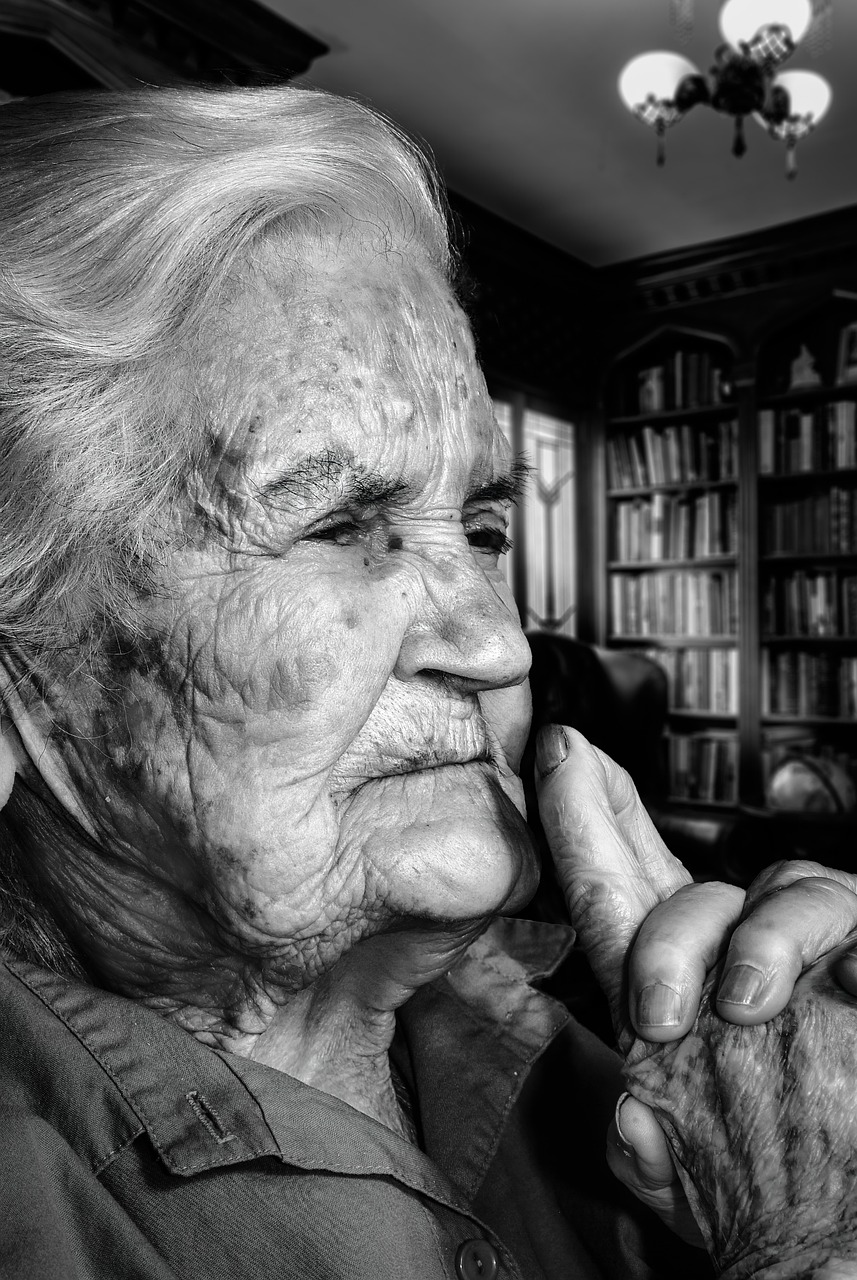Discover the science-backed daily habits of people who live over 100—simple yet powerful routines that support longevity, vitality, and overall well-being. This guide uncovers the latest research, lifestyle patterns, nutritional choices, movement practices, and mental health strategies shared by centenarians across the globe. We’re here to equip you with actionable insights, timeless wisdom, and inspiring real-life stories to help you build a daily rhythm that supports a long, healthy, and fulfilling life. We will share secrets of centenarians with you.
The Longevity Code: Secrets of People Who Thrive Beyond 100
Why do some people thrive past 100 while others struggle to reach their 80s? Around the world, a growing number of individuals are not only living longer—but living better. These centenarians often remain active, mentally sharp, and deeply connected to their communities well into their triple digits. So what’s the secret of centenarians?
Studying people who live over 100 offers us more than just curiosity—it provides a living blueprint for health, happiness, and longevity. From the Blue Zones of Okinawa, Japan to the mountain villages of Sardinia, Italy, researchers have uncovered consistent lifestyle patterns that contribute to extended vitality. And the good news? These habits aren’t extreme, expensive, or out of reach—they’re surprisingly simple, intentional daily practices that anyone can begin to adopt.
In this article, we’ll dive into the science-backed routines and timeless wisdom of those who have achieved extraordinary longevity. You’ll discover what centenarians eat (and don’t eat), how they move their bodies, the way they sleep, the relationships they prioritize, and the mindset they carry through life. We’ll also explore fascinating real-life stories, cutting-edge research, and easy strategies you can apply to your routine. Let’s explore the longevity lifestyle.
Morning Rituals of Centenarians
- Wake-Up Time & Natural Light Exposure
Consistently waking up with natural light helps regulate circadian rhythms, which improves sleep quality, energy levels, and hormonal balance. - Gentle Movement: Walking, Stretching, or Tai Chi
Light physical activity in the morning improves blood circulation, reduces stiffness, and activates the nervous system for a focused day ahead. Tai Chi and stretching are especially effective for aging populations. - Purpose-Driven Mindset (Ikigai or Daily Intention)
Many centenarians begin their day by connecting with a sense of purpose or setting a small, meaningful goal. This “ikigai” (reason for being) is linked to mental resilience and longevity. - Science-Backed Benefits of Morning Consistency
A consistent morning routine reduces decision fatigue, lowers stress, and sets a predictable rhythm for healthy behaviors to follow throughout the day. - Connect with Nature or Community
Mornings often involve tending to animals, watering plants, or greeting neighbors. These light, intentional actions create a sense of rhythm and belonging. - Eat Light, If at All
Many centenarians follow a light or delayed breakfast, often with herbal tea or small portions. In places like Okinawa, morning meals are nutrient-dense but modest—supporting metabolic health and digestion. - No Screen Time, No Rush
Their mornings are tech-free, unhurried, and mindful—centered on living in the present. This reduces stress and supports emotional well-being.
What Centenarians Eat (and Don’t Eat)
- Plant-Forward Diets, Moderation & Whole Foods
Centenarians consistently eat diets rich in vegetables, legumes, whole grains, fruits, and healthy fats. Animal products are consumed sparingly, and processed foods are minimal to nonexistent. This plant-based pattern supports heart health, reduces inflammation, and promotes gut health. - Cultural Habits: Mediterranean, Okinawan, and Nicoyan Principles
Diets in Blue Zones like Sardinia (Mediterranean), Okinawa, and Nicoya include local, seasonal, and minimally processed ingredients. Staples include olive oil, sweet potatoes, beans, and fermented foods. These traditional eating patterns are strongly linked to longevity. - Fasting, Portion Control & “Hara Hachi Bu”
Many centenarians follow a habit of eating until 80% full—a Confucian concept known as hara hachi bu—which reduces calorie intake and prevents overeating. Some cultures also practice time-restricted eating or natural intermittent fasting. - Hydration & Herbal Teas
Rather than sugary drinks, centenarians drink plenty of water, along with herbal teas like green tea, chamomile, or turmeric infusions. These support digestion, reduce inflammation and provide antioxidants.

Daily Movement of Centenarians (Without the Gym)
- Low-Intensity Physical Activity Throughout the Day
Centenarians rarely “exercise” in the modern sense. Instead, they engage in natural movement—light physical activity that happens as part of daily living. They walk to the market, sweep their homes, tend to animals, or cook meals. This consistent movement keeps the body active without strain. - Gardening, Walking, Housework, and Dancing
These seemingly simple tasks are deeply woven into the lives of those who live over 100. Gardening strengthens muscles and improves flexibility; walking maintains cardiovascular health; dancing enhances coordination and joy; and housework provides full-body movement while fostering routine. - Mobility and Joint Health Benefits
Gentle, consistent motion keeps joints lubricated, maintains muscle mass, and prevents stiffness—especially in older age. The daily movement also reduces the risk of falls and supports independence. - NEAT (Non-Exercise Activity Thermogenesis)
NEAT refers to the calories burned during daily activities outside of intentional exercise. It includes walking, cleaning, cooking, and even standing. High NEAT levels are strongly associated with lower obesity risk, improved metabolic health, and greater longevity.
Strong Social Ties & Community Belonging
- The Power of Connection and Emotional Support
Social interaction is one of the most consistent predictors of longevity. Centenarians often live in tightly-knit communities where emotional support is abundant, and isolation is rare. This enhances resilience, lowers stress, and improves immune function. - Multi-generational households and Shared Meals
Many long-lived individuals live with or near children and grandchildren. Shared meals foster connection, reduce loneliness and pass down cultural and dietary traditions that support healthy aging. - Clubs, Volunteering, or Spiritual Groups
Daily or weekly involvement in social or spiritual groups creates a sense of purpose and belonging. Whether it’s a church gathering, knitting circle, or walking group, these consistent interactions support both mental and emotional well-being. - Mental Health & Reduced Stress Links to Social Life
Regular social engagement has been linked to reduced rates of depression, anxiety, and cognitive decline. It also helps lower cortisol (stress hormone) levels and boosts serotonin, improving overall mood and brain function.
Purpose, Faith & Mental Clarity of Centenarians
- The Role of Spiritual Practices, Gratitude, and Prayer
Many centenarians engage in spiritual rituals—whether it’s prayer, meditation, or moments of silence. These practices foster a sense of peace, reduce anxiety, and promote inner stability. Gratitude is also a daily habit, helping to shift focus toward the positive. - Purpose-Driven Living and Its Effect on Longevity
Having a sense of purpose, often called “ikigai” in Japan or “plan de vida” in Costa Rica, gives centenarians a reason to wake up every day. Studies show that purpose is linked to lower mortality rates, improved memory, and stronger mental health. - Stress Reduction Strategies: Breathwork, Journaling, Mindset
Breathwork and mindfulness are commonly practiced—even if not in modern terms. Centenarians often process emotions through conversation, prayer, or reflection. This minimizes chronic stress, which is a major contributor to aging and disease. - Studies on Optimism and Resilience in Centenarians
Research shows that centenarians tend to be highly resilient and optimistic. They adapt to change, maintain hope in tough times, and find humor in everyday life. These traits are linked to a lower risk of depression and a longer lifespan.

Image by RDNE Stock
Quality Sleep & Restorative Downtime of Centenarians
- Natural Sleep Rhythms, Light Exposure, and No Alarms
People who live over 100 often follow natural sleep rhythms, waking up with the sunrise and falling asleep shortly after the sun sets. This routine aligns with their body’s circadian clock, promoting better sleep quality and overall health. They avoid artificial light at night and, instead of relying on alarms, their bodies wake up naturally. Exposure to natural light during the day, especially in the morning, helps set these rhythms, boosting alertness and maintaining energy levels.
- Napping Habits and Circadian Balance
Many centenarians take short naps during the day, particularly in the afternoon. These naps (around 15-30 minutes) help restore energy levels, enhance cognitive function, and support cardiovascular health. Napping in harmony with one’s natural circadian rhythm helps prevent over-exhaustion and supports long-term health.
- Creating an Environment for Rest and Recovery
A good night’s sleep requires an optimal environment. People who live to be 100 tend to create calm, dark, and quiet spaces for sleeping. They also avoid excessive screen time before bed, as blue light can disrupt sleep patterns. Maintaining a cool, comfortable environment with minimal noise and distractions promotes deep, restorative sleep.
- Importance of Restorative Time Over Constant Productivity
Rest and recovery are just as important as activity. Centenarians prioritize downtime, whether it’s through meditation, relaxation, or simply spending quiet time with loved ones. They understand the value of recharging without feeling the constant pressure to be “productive.” This approach allows their bodies to repair, and their minds to stay sharp, preventing burnout.
What Centenarians Avoid (and Why It Matters)
- Sedentary Behaviors, Processed Foods, Excessive Alcohol
Centenarians avoid sedentary lifestyles. Instead of sitting for long periods, they incorporate movement into their daily routine. They also avoid processed foods and limit alcohol consumption, preferring fresh, whole foods. Diets rich in fruits, vegetables, legumes, and healthy fats are central to their longevity. Excessive alcohol and high-calorie processed foods are known contributors to chronic diseases and shortened lifespans. - Chronic Stress and Overworking
Chronic stress and long hours of overworking can lead to premature aging and a range of health issues like cardiovascular disease, depression, and cognitive decline. People who live to 100 tend to avoid high-stress environments and make time for relaxation. They understand the importance of balance and prioritize health over work. - Toxic Relationships or Isolation
Negative relationships or social isolation have been linked to earlier mortality rates. Centenarians tend to have strong, positive relationships with family and friends, creating a support system that promotes mental and emotional well-being. - Modern Pitfalls That Sabotage Healthy Aging
Modern life is full of distractions that can harm longevity, from excessive screen time to stress-inducing media consumption. Centenarians avoid overconsumption of news, negative media, and unhealthy lifestyle choices that contribute to anxiety and disconnection.
Real-Life Centenarian Stories & Quotes
- Short Inspiring Profiles from Blue Zones or Interviews
Take a glimpse into the lives of some of the world’s oldest people. In Blue Zones such as Okinawa (Japan) and Sardinia (Italy), people have lived active lives well beyond 100. In interviews, they share stories of maintaining strong family bonds, eating fresh food, staying active in their communities, and cultivating a positive mindset.
- Direct Quotes on What They Attribute Their Long Life To
Many centenarians attribute their longevity to their daily habits, such as eating fresh food, maintaining a sense of purpose, and having strong social connections. For example, a centenarian from Okinawa shared, “I have always surrounded myself with loved ones and kept a small garden to tend to, this keeps me happy.”
- “If I Had to Choose One Habit…” – Style Reflections
A common reflection from centenarians is the importance of maintaining simple habits that promote well-being: “If I had to choose one habit, it would be walking every morning with my neighbors” (Nicoya, Costa Rica). Another says, “Eating in moderation and spending time with family are my keys to happiness and health.”
Final Thoughts: What You Can Start Doing Today
- Summary of Top 5 Takeaways
- Focus on daily movements, such as walking or gardening.
- Establish a purpose-driven life with strong social connections.
- Prioritize quality sleep and create an environment that promotes rest.
- Limit processed foods and sedentary behaviors.
- Manage stress through mindfulness and relaxation practices.
- Emphasis on Small, Consistent Changes
Longevity isn’t about drastic lifestyle overhauls. It’s about small, consistent changes that add up over time. Start by adopting one or two new habits, like daily walking or improving your sleep environment, and gradually build from there. - Encouragement to Personalize Your Longevity Lifestyle
Everyone’s path to longevity is different. What works for one person may not be ideal for you, but by embracing the principles of a longevity lifestyle—regular movement, connection, purpose, healthy food choices, and rest—you can create a lifestyle that works for you.
100 plus: Centenarians Reveal Their Healthy Aging Life
Talk Story with a Centenarian
100-Year-Old Shares the Secret to Living 100 years
References:
Wikipedia on Centenarians
Harvard Health on Centenarians






Leave a Reply